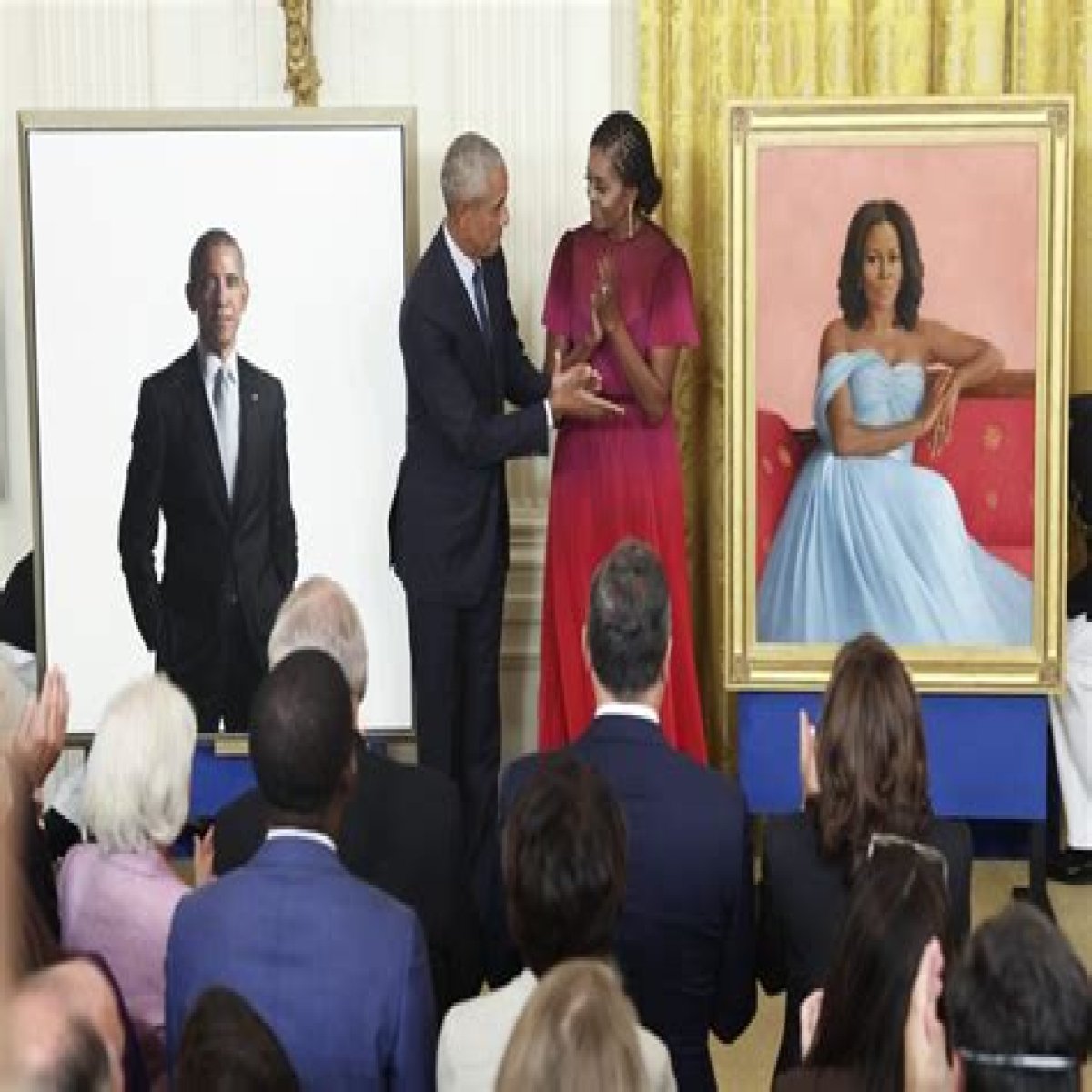In the ever-evolving landscape of American politics, the transition of power is often a pivotal moment that shapes the future of the nation. Following the significant two-term presidency of Barack Obama, many Americans found themselves asking, "Who was president after Obama?" This question not only resonates with political enthusiasts but also with everyday citizens who are keen to understand the ramifications of each presidential administration. The answer to this question is a testament to the democratic process and the will of the people, showcasing how elections can significantly alter the course of governance in the United States.
After Obama’s presidency, which was marked by landmark legislation and a unique approach to foreign policy, the nation was ready for a new chapter. The 2016 presidential election resulted in a surprising outcome that would lead to the election of Donald J. Trump as the 45th president of the United States. Trump's administration was characterized by a series of controversial policies and a distinctive communication style that kept the nation captivated, and at times, divided.
As we delve deeper into the presidency that followed Obama's, it becomes essential to explore not only the personal and political background of Donald Trump but also the major events and decisions that defined his time in office. This exploration will provide clarity on the question, "Who was president after Obama?" and the impact of Trump’s presidency on both domestic and international fronts.
Who Was Donald Trump?
Donald John Trump, born on June 14, 1946, in Queens, New York City, is a prominent American businessman, television personality, and politician. He assumed the presidency on January 20, 2017, after winning a contentious election against Democratic candidate Hillary Clinton. His unorthodox style and approach to politics set him apart from his predecessors and have left a lasting impact on the political landscape in the United States.
| Personal Details | Bio Data |
|---|---|
| Name | Donald John Trump |
| Date of Birth | June 14, 1946 |
| Place of Birth | Queens, New York City, USA |
| Political Party | Republican |
| Presidential Term | January 20, 2017 – January 20, 2021 |
What Were the Key Policies of Trump’s Presidency?
Donald Trump's presidency was marked by several key policies that stirred national debate. These policies revolved around various sectors, including immigration, healthcare, and foreign relations. Below are some notable aspects:
- Immigration Policy: One of Trump's most controversial policies was his stance on immigration, including the proposed border wall between the U.S. and Mexico and the travel ban on several predominantly Muslim countries.
- Tax Cuts: Trump enacted the Tax Cuts and Jobs Act in 2017, which aimed to reduce taxes for individuals and corporations, claiming it would stimulate economic growth.
- Trade Policies: His administration took a hardline approach to trade, renegotiating NAFTA and imposing tariffs on several countries, particularly China.
- Foreign Relations: Trump's approach to foreign policy was marked by an "America First" strategy, which included withdrawing from international agreements such as the Paris Climate Accord.
How Did Trump Approach Healthcare Reform?
Healthcare reform was another significant aspect of Trump's presidency. His administration sought to repeal and replace the Affordable Care Act (ACA), also known as Obamacare. While the complete repeal did not materialize, several changes were made, including the elimination of the individual mandate penalties:
- Push for Repeal: Trump consistently advocated for the repeal of Obamacare, arguing that it was detrimental to the economy.
- Expansion of Short-Term Plans: The administration allowed short-term health plans that did not have to comply with ACA standards, providing more options but also potentially leaving some individuals with inadequate coverage.
What Were the Major Events During Trump’s Presidency?
Throughout Trump’s term, several major events captured national and international attention, including:
- The Mueller Investigation: This investigation looked into potential collusion between Trump's campaign and Russian interference in the 2016 election.
- Impeachment: Trump was impeached twice by the House of Representatives, first in December 2019 over abuse of power and obstruction of Congress, and again in January 2021 for incitement of insurrection following the January 6 Capitol riots.
- COVID-19 Pandemic: The emergence of the COVID-19 pandemic in early 2020 significantly impacted Trump's presidency, affecting public health policies and the economy.
Who Was President After Trump?
Following Trump's controversial presidency, the 2020 election ushered in a new leader, Joseph R. Biden Jr., who officially took office on January 20, 2021. Biden's administration marks a stark contrast to Trump's, with a renewed focus on unity, restoration of alliances, and addressing the ongoing pandemic.
What Changes Did Biden Implement Upon Taking Office?
Upon taking office, Biden quickly moved to reverse many of Trump's policies. Some significant actions included:
- Rejoining the Paris Agreement: Biden recommitted the U.S. to the international climate accord to combat climate change.
- COVID-19 Response: His administration prioritized vaccine distribution and enacted relief packages to support individuals and businesses affected by the pandemic.
- Restoration of DACA: Biden sought to preserve the Deferred Action for Childhood Arrivals (DACA) program, which Trump attempted to dismantle.
Conclusion: Who Was President After Obama and What Does It Mean for America?
In summary, the presidency of Donald Trump following Barack Obama has been marked by significant political and social changes. Understanding "who was president after Obama" is critical in grasping the broader narrative of American political history. Trump's unique approach, policies, and the events of his presidency have left an indelible mark on the nation, leading to the subsequent election of Joe Biden and a new chapter in American governance. As the political landscape continues to evolve, the legacies of these presidencies will undoubtedly influence future electoral outcomes and policy directions.
Unveiling The Charisma Of The High Fade Beard: A Trendsetter's GuideCelebrating Love: Happy Birthday To Your HusbandDiscovering The Intriguing Aspects Of Myself
Before and after How much the presidency has aged Barack Obama The
This lady took Trumps soul my god... Thats tough. But she's onto
How Obama won reelection
